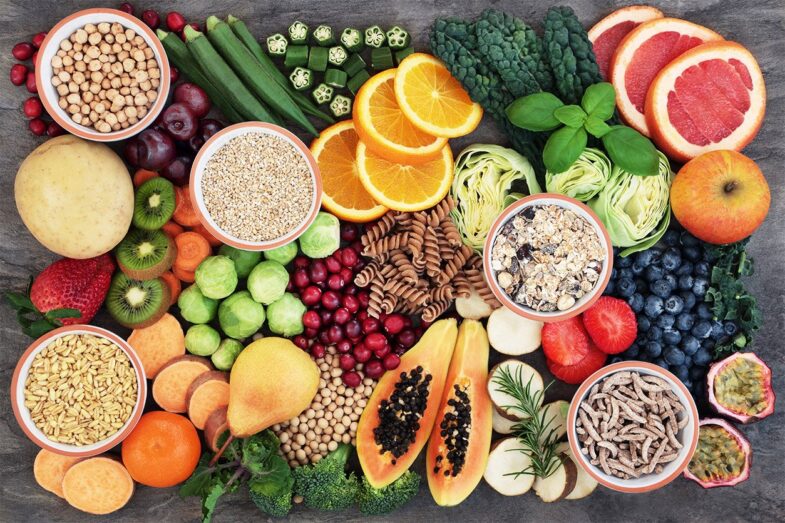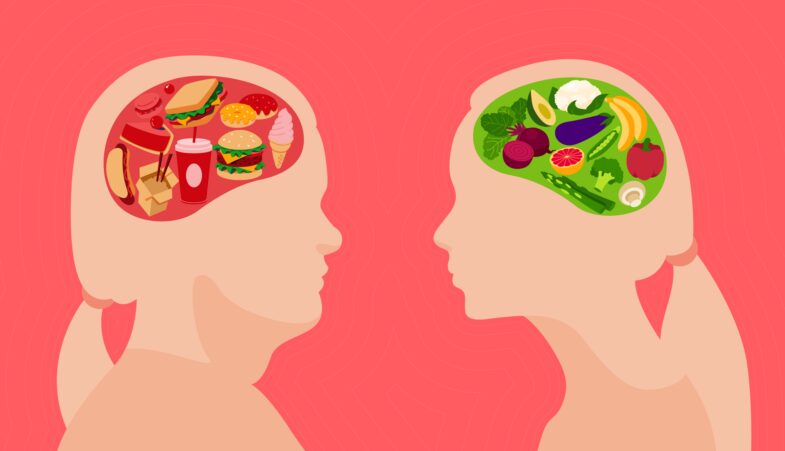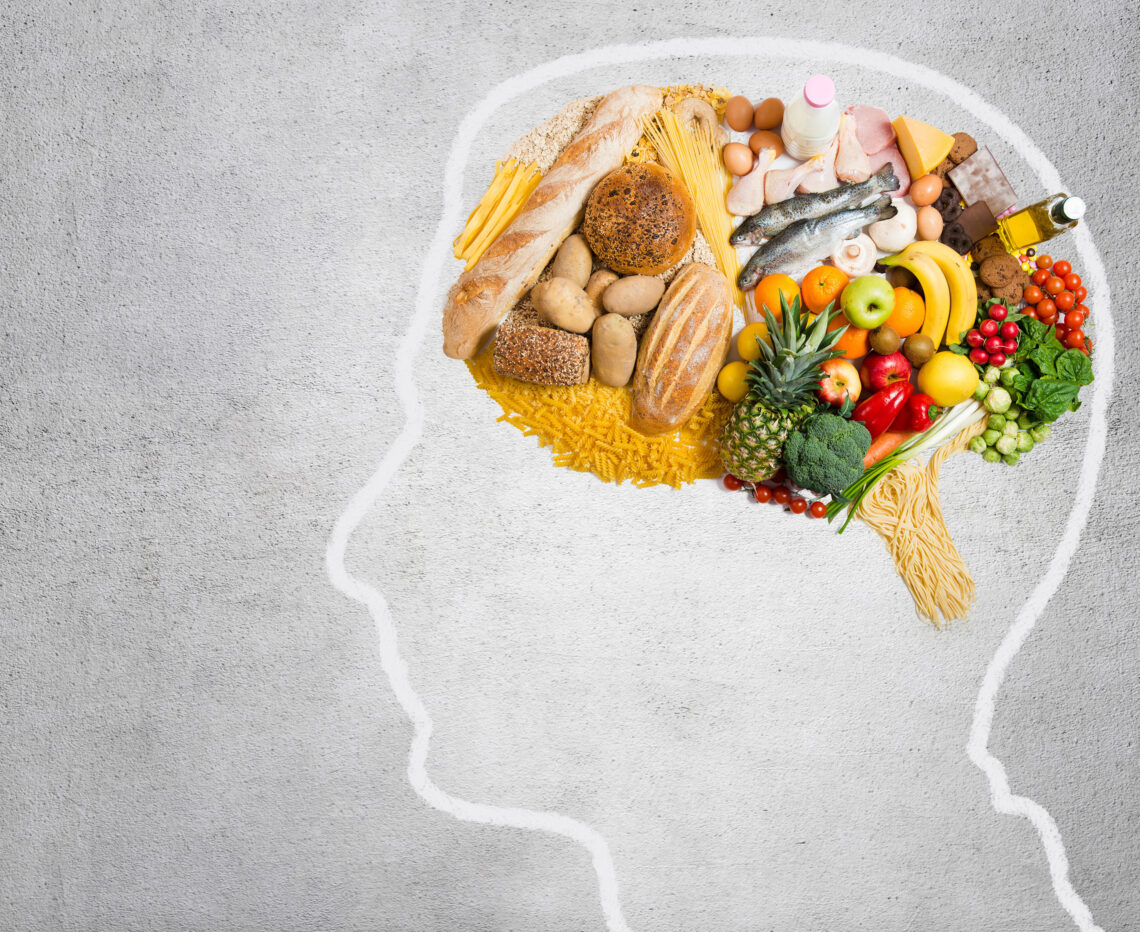From childhood, many kids get taught by their well-wishers to eat well to have a healthy and good-looking body. But the fact everyone forgets to convey is that low-nutrition food remarkably affects mental health.
Legacy nutrition provides a healthy, nutritious, well-balanced diet that helps to be attentive and have a straightforward thought process, which promises a better life. A deficiency in nourishment can lead to tiredness and weaken decision-making skills, decreasing the response time. It also could provoke tensions and unhappiness among people.
Food, Mood, And Mental Connection
The science behind food, mood and mental connection is a connection that links nourishment and sentiments arising from the relationship between the brain and the digestive system, often referred to as the second brain.
The human body’s digestive system harbors billions of bacteria that significantly impact the creation of chemical substances that form a bridge to send messages from the gut to the brain. The most familiar example is dopamine and serotonin. They both act as a neurotransmitter.
Eating a healthy diet boosts the growth of beneficial bacteria in the body, producing valuable chemicals. Then the brain will receive positive messages reflecting upon mental health and mood.
Too much sugar intake causes inflammation and feeds the harmful bacteria in the digestive system, creating temporary spikes that result in a need for a sugar rush, which will harm the body in the long run.
A nutritious diet helps lower mood swings, promoting proper focusing and concentration. Studies have shown that to help cope with worries and depression, whole and unprocessed foods should be taken. An unhealthy diet increases the risk of mental illness or even strokes.
Most processed foods are addictive, and when the contents of refined carbohydrates and sugars get cut off from the diet, the physiology of the brain changes, which will improve mood and mental health.
Foods For A Healthy Lifestyle

Source: healthline.com
Many nowadays are relying on processed foods as their daily diet, which impairs their health in the long run without them realizing it. These processed foods have a high content of flour and sugars that starts instructing the brain to crave more of these rather than go for nutritious foods like vegetables and fruits. So the next time when visiting any grocery store, the items to look at and not look for are
Whole Foods
Many studies show that food colorings and other preservatives worsen the symptoms of depression and hypertension.
Many nutrition counselors convey that eating real food or having minimally processed foods, at the most, will promote a healthy lifestyle. Having fresh vegetables and fruits of different colors is the starting step.
The healthy nutrients from vegetables and fruits provide benefits for both the body and the mind. It is the best and easiest way for our bodies to get the much-needed vitamins and other nutrients that promote the physical aspect, giving many psychological benefits.
Fiber Foods

Source: agamatrix.com
Most plant-based foods have fibers, which help the human body absorb sugars or glucose more slowly, stopping that craving for sudden sugar rushes, which helps prevent the crash in the body’s digestive system.
Fruits, vegetables, and nutrition carbs like beans and whole grains have a high content of fiber which is good for the body.
Foods With Antioxidants
Antioxidant foods are infection fighters, and it is available and abundant in the spice turmeric, berries, and green leafy vegetables. Even foods like black chia seeds and salmon fish have Omega-3, which is nutritious. Also, dark chocolate is a good antioxidant source, but indulge in it moderately only as it contains sugar.
Foods Having Folate
Folate is a type of vitamin B having dopamine. These are there in leafy vegetables, melons, and pulses.
Have Foods Containing Vitamin D
Vitamin D helps produce serotonin in the human body; this vitamin is available in abundance from sunlight. But only some know that it is also available in mushrooms.
Have Foods Containing Magnesium
Magnesium is essential to keep a steady heartbeat and properly function nerve cells and muscles. It is also a vital ingredient for generating the food-mood connection.
A deficiency of this mineral could hurt the gut’s good bacteria, leading to symptoms like anxiety and depression. Magnesium gets found in almonds, cashew, leafy vegetables, beans, and spinach.
Have Fermented Foods
Having fermented foods helps get enough probiotics for the digestive system, which provides health benefits for the body—foods like kimchi, tempeh, yogurt, cheese, and any fermented drinks are some excellent examples.
Nutrition Improves Mood And Mental Health

Source: atlasbiomed.com
Eating foods having healthy nutrients helps the body grow, repair itself and function properly. As per science, the daily energy requirement for the brain is twenty percent compared to the whole body.
Nutritious foods provide the body with enough building blocks needed. From healthy fats to fiber, which includes a good amount of vitamins and minerals, it helps maintain mood and mental health. Healthy nutrition also helps in,
Overcome Stress And Depression
Processed foods and sugar lead to inflammation in the body and affect the brain, which leads to mood imbalances that develop stress and depression.
People, when stressed or even depressed about something or someone, reach out for processed food. With their busy schedules in life, most people opt for just a cup of coffee instead of a full breakfast and fruit.
Instead of having a healthy lunch with vegetables, many gobbles up high-calorie fast food, and for a few, a dinner is completed by just having an ice cream. This improper diet style leads to a much more stressful and depressed life.
To boost mood and mental health, include foods having omega-3, which gets found more in fish like salmon, different varieties of nuts, plant oils, and others. Having leafy vegetables, seeds, and nuts helps protect the brain.
Promotes Healthy Gut

Source: forbes.com
You are what you eat. Having nutritious food to maintain a healthy lifestyle is essential. There is a strong connection between the intestines and the brain.
The vagus nerve directly links the guts and brain, which helps send messages to each other. It enables the stomach to impact emotional feelings in the brain, and the brain can alter the bacteria type harbored in the gut.
The bacterias present in the gut area of the human body produces neurochemicals that are useful for the brain in regulating biological need and mental health that affects mood swing.
Bacteria in the gut produce almost ninety-five percent of the serotonin required for the body, which helps stabilize mood swings.
Conclusion
Healthy, nutritious food helps manage stress, improving sleep and concentration. It, in turn, helps in the overall well-being of the body. If a healthy diet plan gets followed, it helps in maintaining a good headspace.
Pay attention to the foods that get eaten because having well-balanced meals, including snacks, is the only way to maintain a healthy lifestyle.
Almost all nutritionists recommend maintaining a food journal that documents what, when, and where different foods got eaten, as it provides an insight into the food pattern followed that would lead to a healthy lifestyle.




